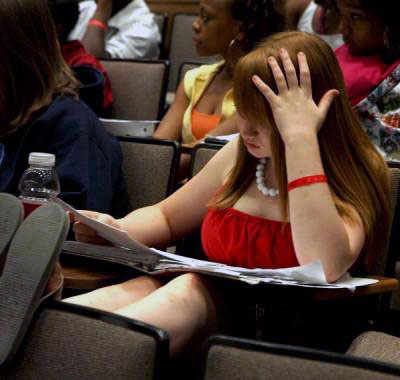All Nonfiction
- Bullying
- Books
- Academic
- Author Interviews
- Celebrity interviews
- College Articles
- College Essays
- Educator of the Year
- Heroes
- Interviews
- Memoir
- Personal Experience
- Sports
- Travel & Culture
All Opinions
- Bullying
- Current Events / Politics
- Discrimination
- Drugs / Alcohol / Smoking
- Entertainment / Celebrities
- Environment
- Love / Relationships
- Movies / Music / TV
- Pop Culture / Trends
- School / College
- Social Issues / Civics
- Spirituality / Religion
- Sports / Hobbies
All Hot Topics
- Bullying
- Community Service
- Environment
- Health
- Letters to the Editor
- Pride & Prejudice
- What Matters
- Back
Summer Guide
- Program Links
- Program Reviews
- Back
College Guide
- College Links
- College Reviews
- College Essays
- College Articles
- Back
School Web Restrictions
As you might know, in recent years the use of online technology in school has become more popular. Students are allowed to research information without the need to leave school grounds, it saves resources used for writing and printing, and the convenience of grades and assignments has spiked. However with the freedom they are given, the concern of web safety was brought up. It became an anxiety that students would take advantage of their access to the internet by engaging in things such as browsing, watching videos, and playing games. This issue was addressed through web restrictions.
As a student who uses online technology on a daily basis, I regularly notice the usage of web restrictions. Though I find it understandable where the need for these restrictions come from, I find that there are quite a few flaws revolving around the system. The main issues being that many distracting sites are left unblocked, and how many needed sites are blocked.
First, regarding the unblocked items. Games, youtube videos, tv shows, are available despite the intention of the restrictions. These are distractions from studying and working. The simple fact that things that should be blocked are not blocked is a sure sign that the system is not doing its job. Yes, you can have them individually blocked by administrators but there are easily hundreds of these sites. No matter how many are restricted there will always be more.
Second, the issue that affects work the most, the unnecessary blocking of sites. This interrupts work and limits our ability to find information during school hours. I have often found that I am unable to access a website that I need at the time, this becoming a burden where it is necessary to wait until I can go home to access it. Another issue I found during a project is that this system blocks suicide hotlines. This really struck me as a stupid mistake to make, as this could cost somebody more than just convenience and time.
As a call to action, I find it necessary to rethink the web restriction system. As a possible solution, one could recreate it as a “smart program” where it learns keywords and takes this data to enable and disable certain sites. Every teacher should have the ability to block and unblock sites as they are in immediate contact with students, and will know which sites are being used. In addition it should be mandatory to ensure that sites that help the wellbeing of students (such as suicide hotlines) are made unblocked. If you find this to be an issue, find out who you can ask to enable and disable sites and contribute to web safety.

Similar Articles
JOIN THE DISCUSSION
This article has 0 comments.
